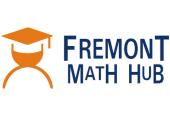Mathematics is key to developing critical thinking, problem-solving skills, and lasting confidence in young learners. As children move through school, many parents wonder whether their child should take on more challenging math opportunities. With the growing availability of advanced placement math and gifted math programs, families now have more ways to support academic growth and future success. Exploring these options can help unlock a child’s potential, offering benefits both in the classroom and later in higher education. This article explains the advantages, challenges, and strategies parents can use to make informed decisions about advanced math courses.

1. What Is Advanced Placement Math?
Advanced placement math refers to high school courses designed to match the rigor of college-level study. These classes cover challenging topics such as calculus, statistics, and advanced algebra, encouraging students to think critically and work more independently than in regular classrooms. They help students develop problem-solving skills, persistence, and the ability to understand abstract concepts. Completing advanced placement math not only strengthens a student’s academic foundation but also shows universities that they are ready for higher-level coursework. In many cases, doing well on AP exams can even earn college credit, giving students a valuable head start in their academic journey.
2. Understanding Gifted Math Programs
Gifted math programs are different from advanced placement courses in both purpose and structure. They are designed for younger students who show exceptional math skills, curiosity, and the ability to learn at an accelerated pace. Rather than just moving ahead in the standard curriculum, these programs provide enrichment through challenging problem-solving activities, open-ended projects, and deeper exploration of concepts. They encourage students to think critically and creatively, helping them see math not just as formulas, but as a connected discipline that applies to real-world situations. By developing both intellectual skills and imagination, gifted math programs give students a stronger, more versatile understanding of mathematics. Learn more about Mental Math Tricks.
3. Benefits of Advanced Math Courses
Enrolling in advanced math courses offers many long-term benefits for students:
A. Academic Growth
Challenging material pushes students beyond their comfort zones, encouraging them to explore new concepts and strengthen logical reasoning skills. By diving deeply into complex topics, students expand their knowledge and build a strong foundation for future success in advanced math and science. This experience also fosters adaptability, helping them approach unfamiliar problems with confidence and creativity.
B. College Preparation
Universities highly value students who complete advanced placement math because these courses show intellectual curiosity, discipline, and the ability to handle rigorous academic work. Doing well in AP courses demonstrates readiness for higher-level studies and gives students a competitive edge during college admissions. Additionally, excelling on AP exams can earn college credit, giving students a head start in their academic journey.
C. Problem-Solving Skills
Advanced math develops analytical thinking and problem-solving abilities. Students learn to break down complex problems, model real-world situations, and find innovative solutions. These skills not only support academic success but also apply to everyday life and future careers, building critical thinking that goes beyond the classroom.
D. Confidence and Motivation
Participating in gifted math programs boosts self-esteem by showing students they can successfully tackle challenging tasks. This sense of achievement fuels motivation and strengthens their belief in their ability to set and reach ambitious academic and career goals.

4. Common Challenges and How to Overcome Them
While the benefits of advanced math are clear, students may face some challenges along the way:
- Time Management: Advanced courses often demand more study hours and consistent effort. Balancing schoolwork with other activities can be tricky. Parents can help by creating structured routines, teaching children how to prioritize tasks, and encouraging the use of planners or digital tools to stay organized.
- Stress and Pressure: The pace and difficulty of advanced math can sometimes feel overwhelming. Students may put too much pressure on themselves. Parents can support them by keeping communication open, suggesting regular breaks, and reminding children that asking for help is a normal part of learning.
- Gaps in Understanding: Since advanced topics move quickly, students may occasionally miss key concepts. If not addressed, these gaps can slow progress. Parents can help by arranging tutoring, encouraging study groups, or using enrichment resources to reinforce understanding.
By tackling these challenges early, families can help their children thrive and gain confidence in advanced math courses.
5. Long-Term Academic and Career Advantages
Advanced math courses do much more than prepare students for college—they also open doors to future career opportunities. High-demand fields like engineering, computer science, economics, and artificial intelligence rely on strong analytical and quantitative skills. Getting early experience with advanced placement math helps students develop these essential abilities, giving them a valuable advantage as they explore these careers.
Students who join gifted math programs also gain important skills beyond academics. They often develop leadership qualities, creative thinking, and the ability to solve problems from different angles. These experiences encourage adaptability and innovation, traits that are highly valued in both higher education and professional life. Overall, advanced math helps students become confident, capable, and resilient, setting them up for long-term success.

6. Conclusion
Deciding if your child should take advanced math courses means thinking carefully about their readiness, interest, and the support they have at home and school. Programs like advanced placement math and gifted math programs can help unlock your child’s potential, spark curiosity, and set them up for future opportunities. With the right mix of challenge, support, and encouragement, children can grow both academically and personally.
For parents seeking expert guidance and personalized math enrichment, Fremont Math Hub offers programs that inspire learning, boost confidence, and help young students succeed.


